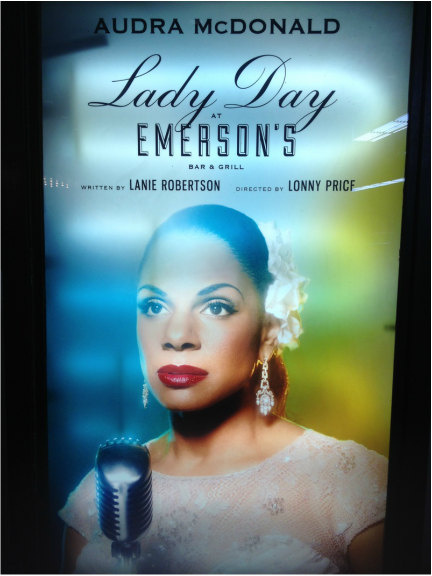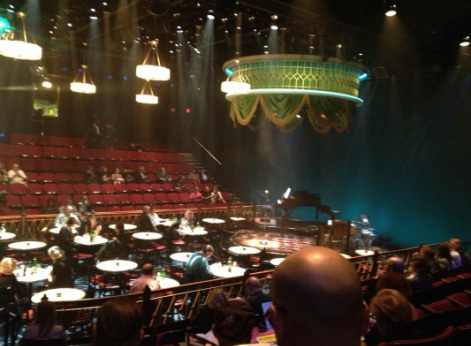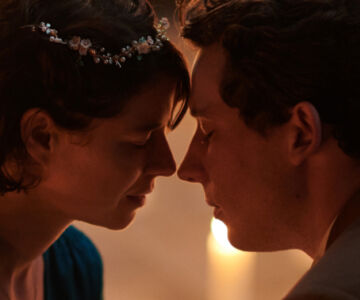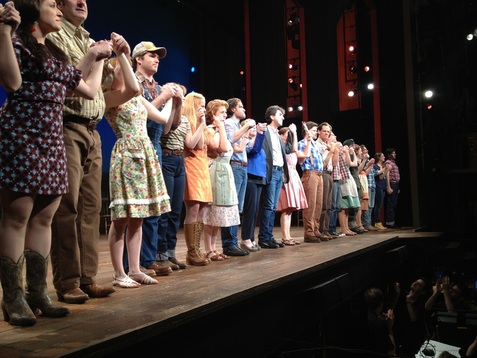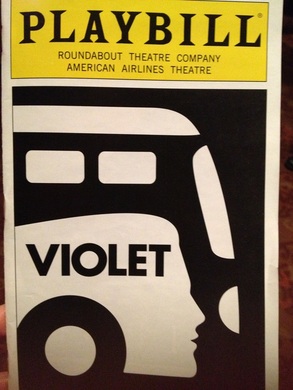 First Broadway Production of "Violet" Is Perfectly Done But Somehow Lackingby Randi / May 24, 2014
First Broadway Production of "Violet" Is Perfectly Done But Somehow Lackingby Randi / May 24, 2014This isn’t an imitation happening onstage, but a full transformation and embodiment of Lady Day, from the mannerisms to the stance to the way she moves her eyes. It’s magic happening in front of you as Audra channels Billie Holiday. Seriously, everyone was gasping and pretty much didn’t stop (at least the people next to me didn’t stop, despite my repeatedly throwing shade).
In between the many songs, which are so astonishing it’s like you could say you actually saw Billie Holiday in concert, Audra tells her concert audience (“my friends”, she calls us) little stories that illustrate her life. This is where the real magic happens, and this is where Audra wins her sixth Tony. Some stories are hilarious yet they all express the untold heartache she has had to experience. She speaks and stumbles and falls and it’s Billie Holiday. She drinks, smokes, walks through the table seating, wanders offstage for several minutes to retrieve her dog, who’s her best friend. She holds back tears, and the audience does too. It’s all Billie.
The stories she tells come up organically between songs and are perfect glimpses into Billie’s turbulent life. She looks back at her backup musicians and drifts off in thought about her old love, a musician who was a drug addict (she says “herwan” and it’s adorable). She tells how the man would say to her, “If you really loved me you’d try it too,” and despite her protests, he kept at it, making her feel unnecessarily guilty and terrible until she couldn’t argue anymore. Her stories are full of people she thought she loved weakening her and manipulating her until they hurt her and took advantage of her. Yet she was still strong. And despite Audra’s hunched posture, wild eyes, and frightening imbalance, she successfully conveyed this inner strength.
The stories about her mother were the most heartbreaking parts. Everyone called her tiny mother “The Duchess”, and Billie makes lots of jokes about how little the Duchess was and how big she herself was. The Duchess had Billie as a very young teenager and put her to work early in various kinds of houses they stayed in. Billie recounts ‘the first time’ she was raped as a young child in one of these houses, told in a tone so casual it showed how accustomed to trauma and tragedy she had become.
One of the most repeated thoughts she shares is that she always wanted a nice house and children, and how much she loved children. She never had any, or had any stability in her life. The beauty of the performance helps to balance just how sad everything is. It’s really a fool’s errand to try to describe how wonderful this show is. If you can get to New York before it closes in August, you absolutely must see this performance of a lifetime. If you can’t, watch the clip below. (Don’t watch it if there’s any chance you can see the show. You don’t want to be spoiled.)


